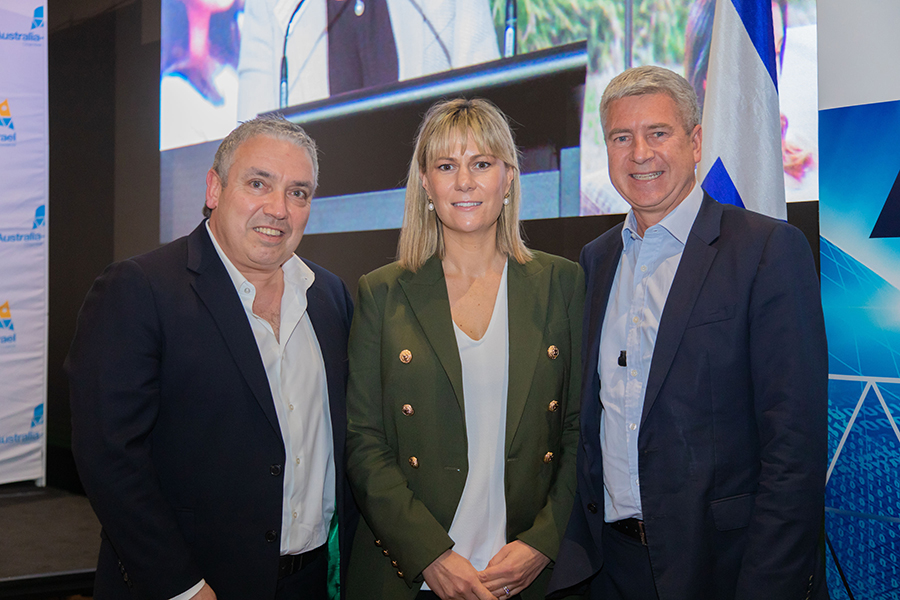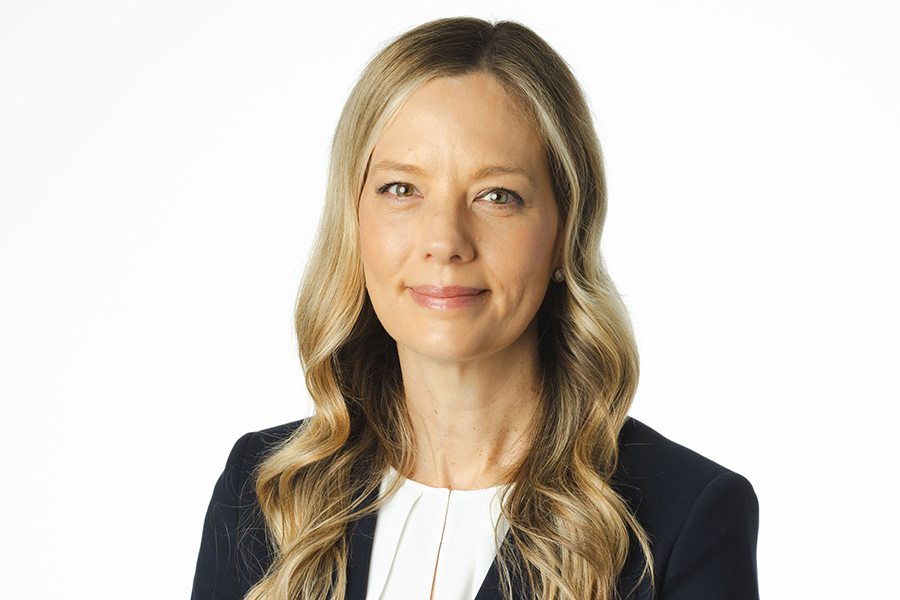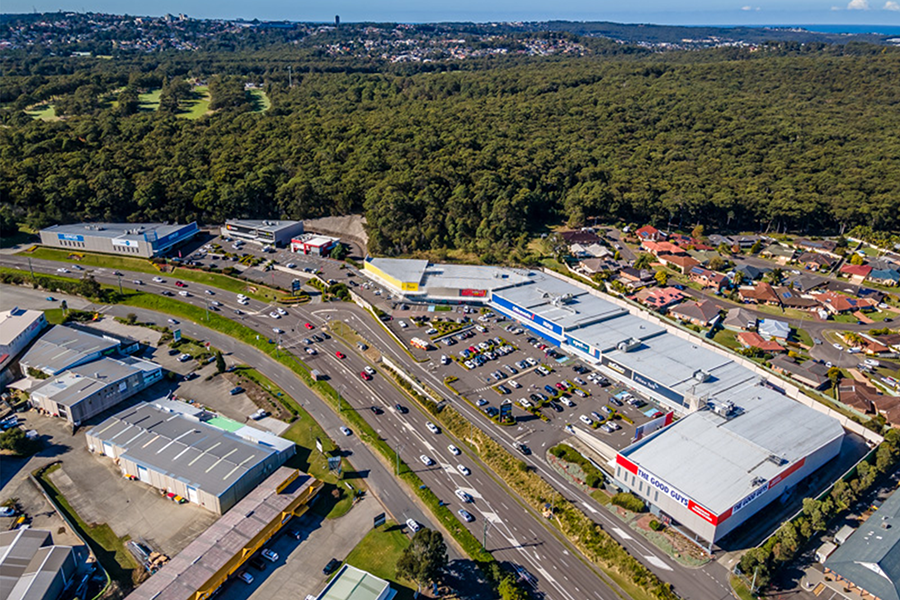Retail heavy-weights joined together yesterday to discuss the topic “The Connected Customer Experience’ . The event hosted by Australia-Israel Chamber of Commerce featured an esteemed panel of leaders representing both the bricks-and-mortar world as well as the pureplay online world; Peter Allen, CEO of Scentre Group, Daniel Agostinelli, CEO of Accent Group and Erica Berchtold, CEO of The Iconic; was moderated by Sky News Business Journalist, Ingrid Willinge.
The discussion was largely dominated by all three agreeing that their businesses need to be more than just customer focused – they need to be ‘customer obsessed’ – where every decision is governed by their customers, while the importance of brand and data are at the forefront.
In today’s world of the ‘always on’, customers are more savvy, demand more and are more connected than ever. In the Australian context, online retail sales continue to grow steadily and has for the past 10 years, however, more than 90% of sales still occur in physical stores.
Peter Allen, CEO of Scentre Group who operates more than 41 shopping centres across Australia and New Zealand said “We released our half yearly results last month and we experienced growth in the first six months of the year. Our July sales were up 2%, ABS said sales were down 0.1% across the board, so there’s a discrepancy in the numbers.”
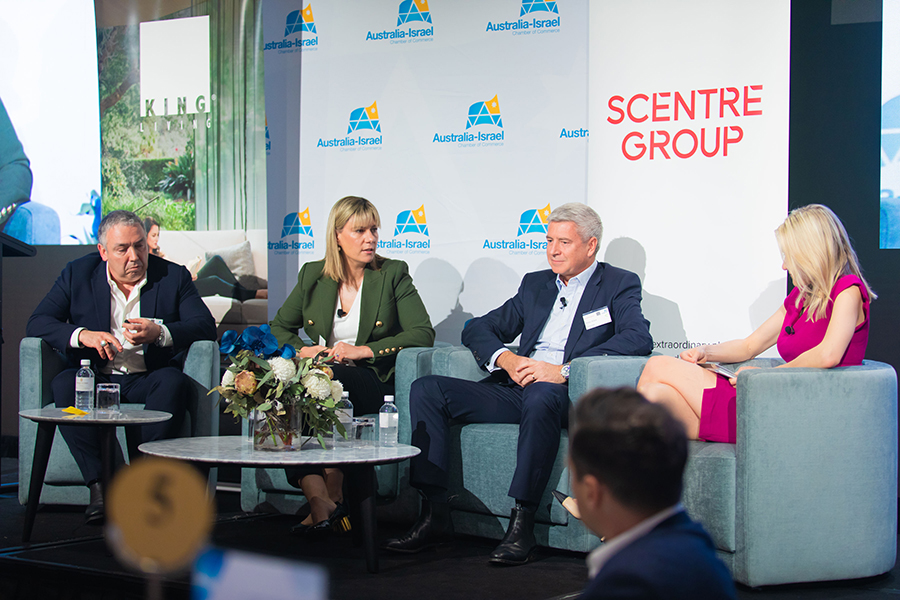
“The Connected Customer Experience” where customers have their say
Allen said “We look at customer aspirational groups, not customer segmentation. It’s about curating the right mix of retailers and services that people want. We are asking ourselves how do we have that one-on-one relationship with the customer? The consumer decides how they want to shop or where they want to go, whether it’s online, Westfield, whether they want to click and collect or delivery on Friday. We have to provide for all scenarios.”
Daniel Agostinelli, CEO of Accent Group has more than 430 stores under eight banners including the Hype DC and Platypus brands. The group is publicly listed and are always innovating to meet market demands.
Agostinelli said “Like most organisations we’re looking for growth at all times, it’s not easy to get. We are able to play in most of the markets that are in footwear. Niche brands/markets like Trybe are us being innovative. Mums and Dads come in to Trybe and want to buy something, it’s about creating the right environment and the experience they’re getting.”
The group have sales approaching $800 million and a market cap of $700 million. Agostinelli added “We collect data at every point we interact with the customer. In order to have a real relationship with the customer, that is what we need to do. The days of sending an email to every customer are over, as is one picture on Instagram. We now need photographers, better content to keep them engaged, personalised emails. It’s a very different space but it’s moving quickly. You need to invest in the curve early, or else you get left behind.”
The Iconic is a pureplay online store housing more than 3,000 brands on their website. When asked if they would entertain bricks-and-mortar stores, Erica Berchtold, CEO of The Iconic said “I’m not sure bricks-and-mortar is staying ahead of what our customer wants, that’s not to say there will be no physical touchpoint. It may be a showroom, it may be us developing tech so that customer can do it in their own home. But we have so much low hanging fruit in the online world that we’re focused on that at the moment.”
Berchtold who has a background in bricks-and-mortar retailing and was recently appointed to her role, was questioned about the new gig and first thoughts when The Iconic wanted to hire her said, when you’re focused on the customer there really is no difference.
“I first thought they were mad, I have never been in pureplay online environment, I lived in the bricks-and-mortar space. But then I understood that the word ‘channel’ doesn’t exist for the customer. It’s really about being customer obsessed. I know how to survey customers in a bricks-and-mortar environment and there has to be a way to do this online, whether it’s fitting a shoe online, visual merchandising, etc. I see myself as a translator and I have to map those translation points.”, she said.
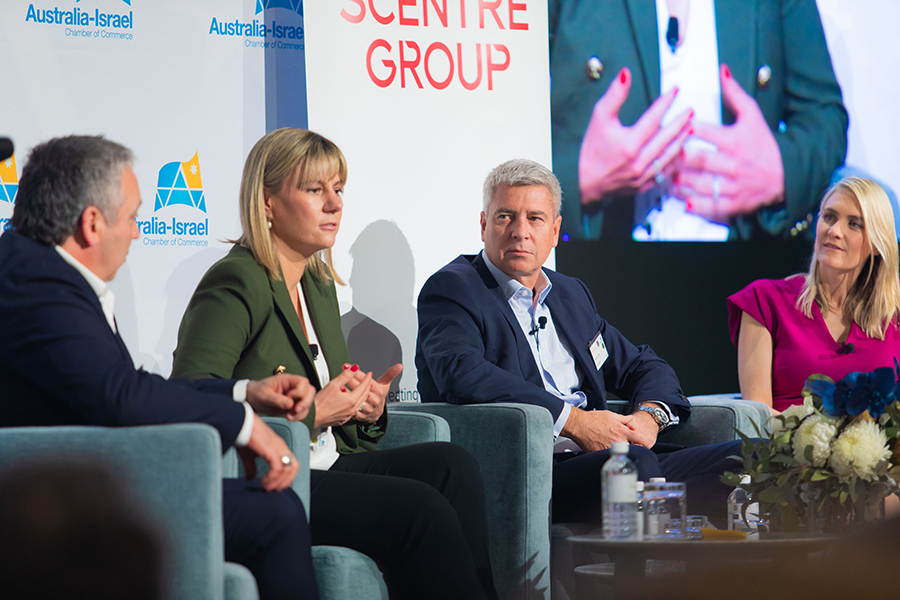
Being ‘customer obsessed’ is key to success
The Iconic understands sustainability is important to customers, she continues “We jumped ahead and decided to invest in sustainability, and have been developing products that have sustainable attributes. We help customers to shop through these attributes. It is becoming increasingly important to customers. Returns are a huge part of online, we don’t want to do a lot of Express Shipping as it’s not good for the environment/large carbon footprint. It’s important to have the conversation with our customers.”
Allen added good old-fashion retail principles are important. “I agree that we are going back to the old days and valuing community. Everyone wants to be seen to be doing the right thing, have sense of belonging. It’s like going to coffee shop and they know your order – you feel part of a tribe. We are asking the question, how can we help our communities? whether it’s our 41 centres or our staff or our retailers” he said.
Daniel Agostinelli has a long career history in retailing having grown the Sanity brand with Brett Blundy and worked with countless international brands growing their store network. Asked how things have changed he said “It’s a massive new world, we used to have six customer service people, we now have 30 ‘customer experience’ people. We track how long it took to answer a call, how long did a live chat take – it’s all or nothing if you’re going to get it right. We’re not fussed where the sale comes from, we just want that sale and our job is to provide the best experience we can.”
Unlike many retailers they are not obsessed with discounting, rather taking a more value approach leveraging their brand attributes “We felt it was reducing our offer. We’re in an interesting part of the market (Adidas, Yeezy, limited numbers, $400 a pair of shoes). What they’re wearing on their feet on the weekend is important for teenagers. If it’s discounted it’s uncool”.
Berchtold added “Retailers discount not because we like discounting but because we have a problem. People may buy groceries from ALDI but then they buy $400 shoes. It’s about what value means in different sections of a customer’s life.”
Allen concluded that retail is buoyant in Australia “We are lucky that we have population growth in Australia and NZ, the young are coming through as the elderly are passing through. It’s hard to meet needs across all demographics which is why we’re looking at aspirational groups. Demographics are very different across our centres, we have to be essential to the community.”
At The Iconic they are consumed by behaviour of shoppers rather than demographics. Berchtold said “We are steering away from an age demographic and more towards attitudes towards a particular product. I know 70 year-olds who like shopping on line and 20 year-olds who go in store. It’s harder to put an age bracket around someone and predict their behaviours.”


